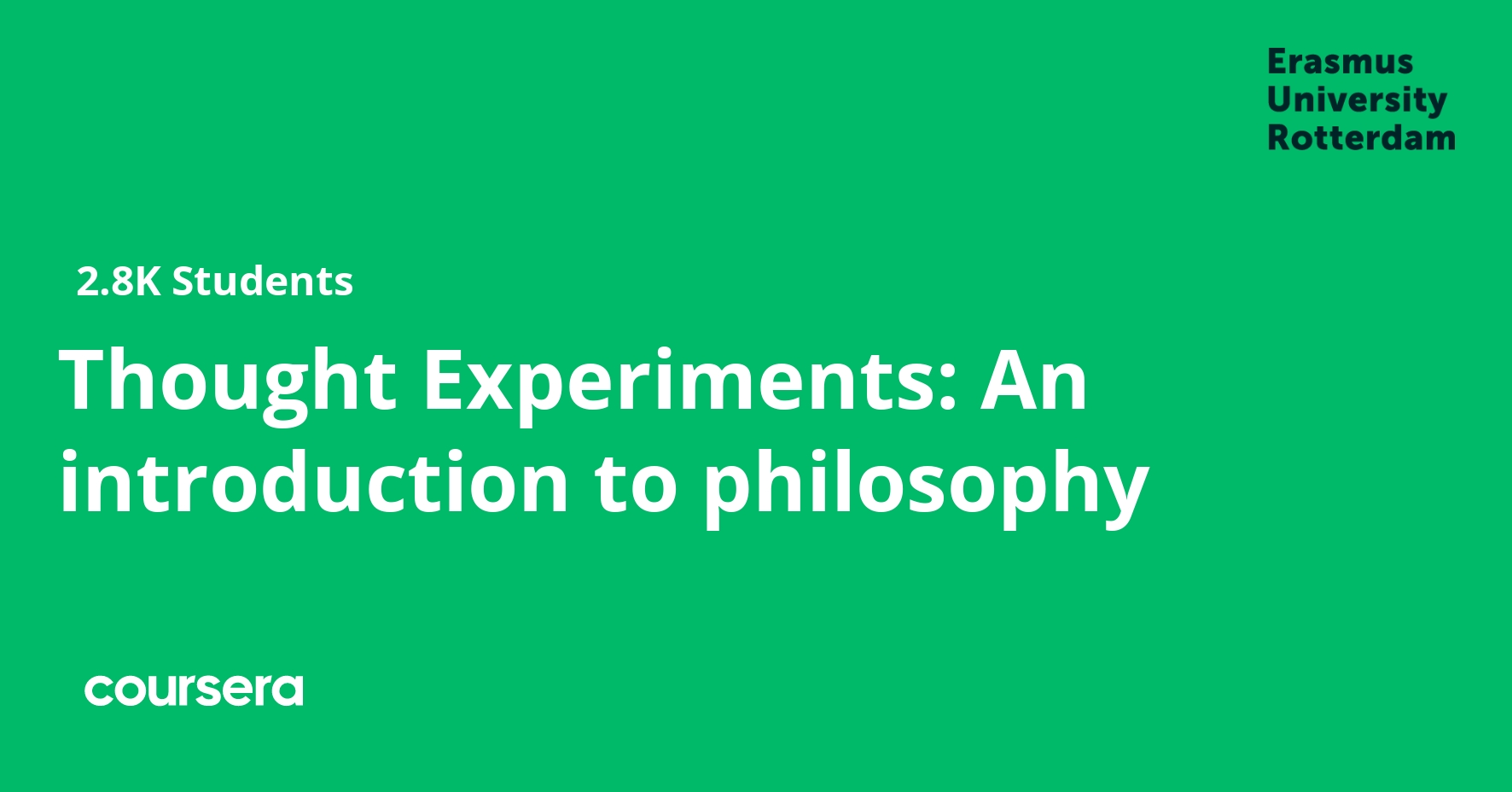Description
Doing philosophy is like seeing a movie and wondering what will happen next, or what you would do in the same situation, or what’s real and what’s merely make-believe.
You’re probably not aware of it, but since you already know how to see movies and use your imagination, you’re well on your way to becoming a good philosopher. The only thing you still need and want to develop though, is the ability to use your imagination in the philosophical way, and that’s exactly what you’ll learn in this MOOC.
Firstly, you’ll learn how to use your imagination to put definitions, analyses or conceptions of philosophically relevant notions to the test by means of imaginary examples and counterexamples, addressing questions that have been part and parcel of Western philosophy since its very inception, such as
– ‘what is knowledge?’;
– ‘what is the mind?’;
– ’what is moral responsibility?’; and
– ‘what is justice?’.
Subsequently, you’ll learn how to use your imagination to develop your worldview. You’ll learn to speculate about what might explain your experiences, ranging from the commonsense explanation in terms of a mind-independent world, to sceptical alternatives, such as that you’re systematically misled by an evil demon or that only your mind exists and that it confabulates all the rest.
Finally, since philosophy is not only about interpreting the world, but also about changing it -and hopefully, for the better- you’ll also learn how to use your imagination to evaluate what the right thing to do is in a given situation, what the criteria are to evaluate actions, and whether such criteria are established evermore or remain an open question.
What you will learn
The problems of philosophy
What does it take to bring the best philosopher out of you? It requires you to systematically use your imagination in the philosophical way. The first module introduces you to the four types of thought experiments that have been part and parcel of Western philosophy since its very inception, and focuses, more specifically, on the role that conceptual thought experiments play in attempts to put one’s finger on the essence, core or nature of philosophically relevant concepts, like sameness and difference, good and evil, knowledge, truth, existence, causality and beauty.
The Gettier problem
Can you know something which isn’t true, or which is only accidentally, coincidentally or fortuitously true? What are the individually necessary and jointly sufficient conditions for an epistemic subject to really know something? The second module illustrates the role that thought experiments play in Socratic dialogues and conceptual analysis, by putting examples of and counterexamples to competing analyses of knowledge under close scrutiny. The focus is on the Gettier problem, i.e., the problem that justified true belief doesn’t seem sufficient of knowledge, and four attempts to tackle that problem.
The problems of scepticism
What is real? Although most of our abductive thought experiments end up interpreting our sensory experiences in terms of an external, material world, there is a persistent tendency among radical empiricists to refuse to make any speculations about what could lie beyond experience and is explanatory of it. In this module, we’ll distinguish between different sceptical worries, suggesting that a motive for such scepticism about the external world, may be to avoid skepticism about knowledge. Moreover, we’ll consider some more recent attempts to solve sceptical paradoxes by appealing to “contexts”.
The mind-body problem
According to Descartes, mind and body are not like love and marriage, because you can have one without the other, However, whoever distinguishes between mind and body, has to explain why they seem to interact. After putting some early modern dualist solutions to the interaction problem under scrutiny, this module discusses four contemporary materialist solutions to the mind-body problem. One of the recurring problems for materialism are the qualitative aspects of our experiences, or qualia for short. A radical solution to that problem, is to simply eliminate qualia altogether.







